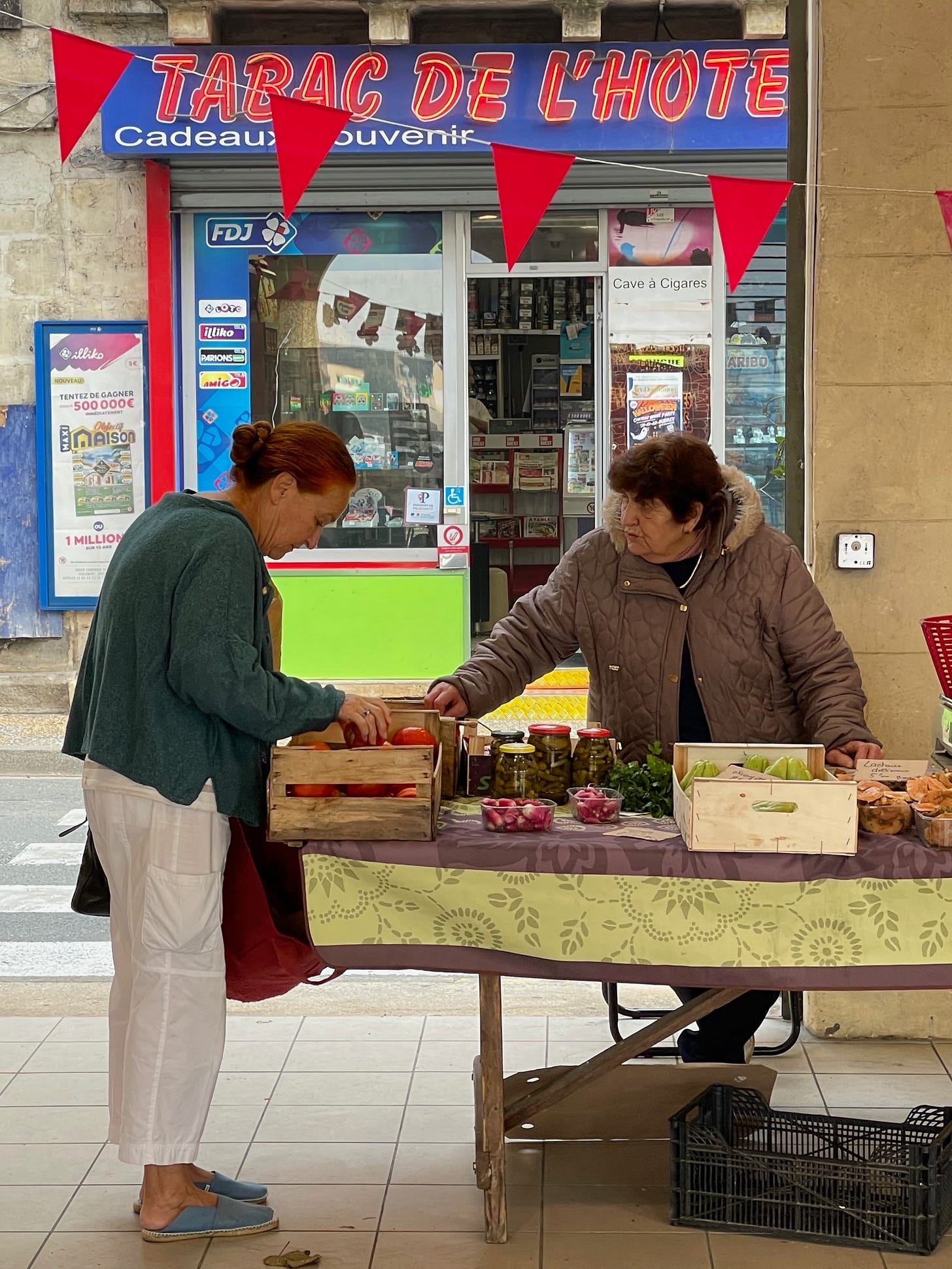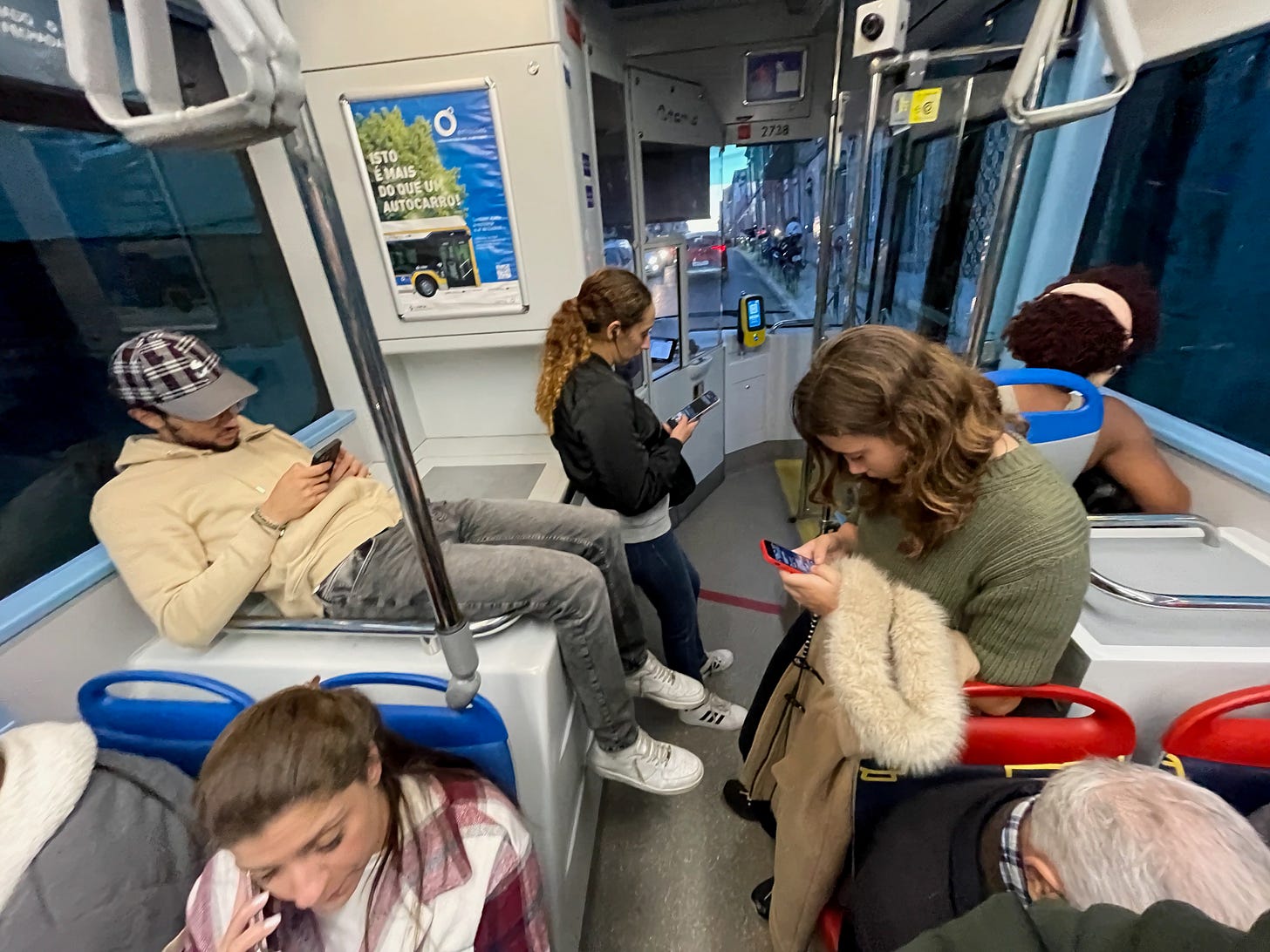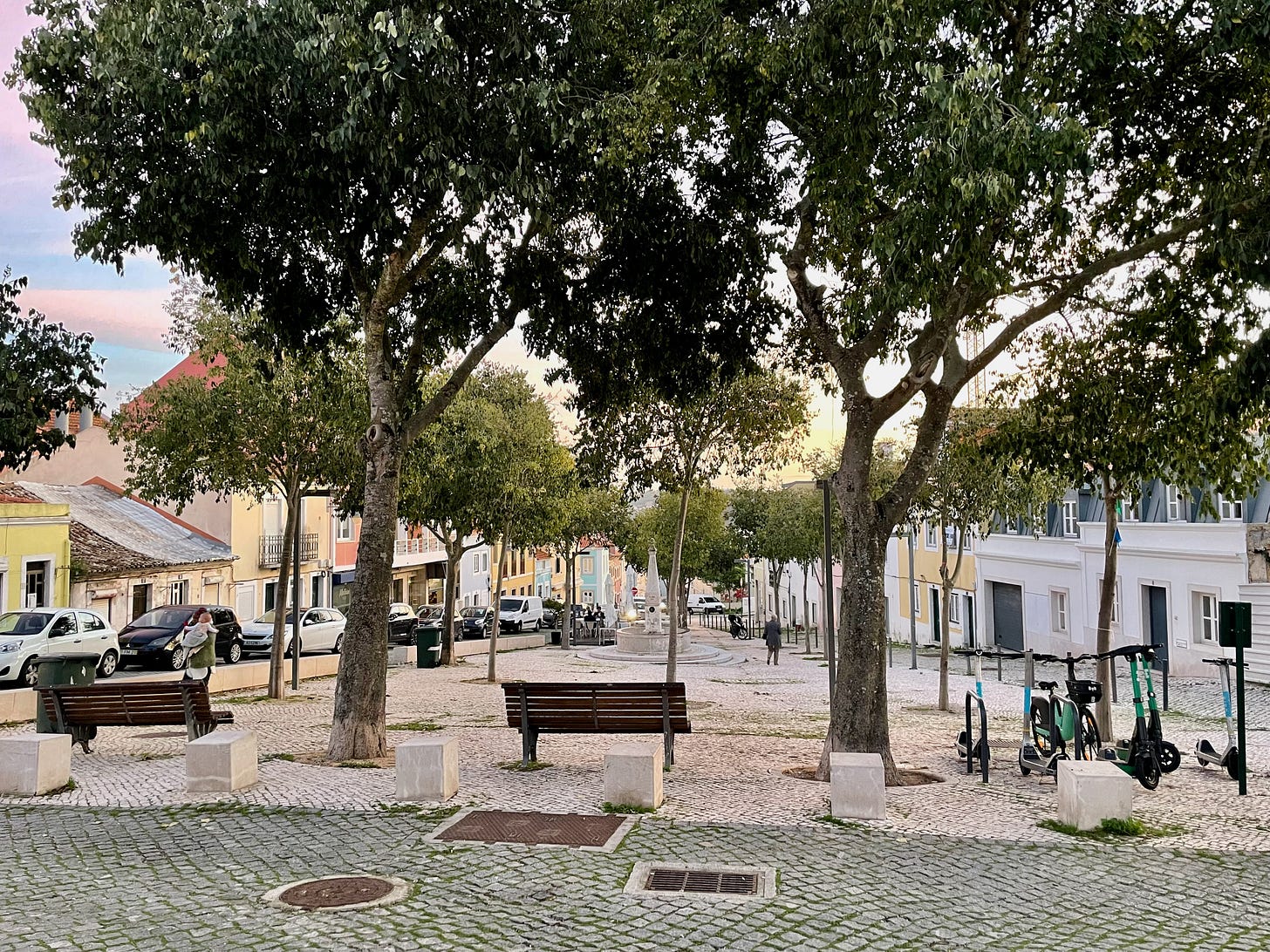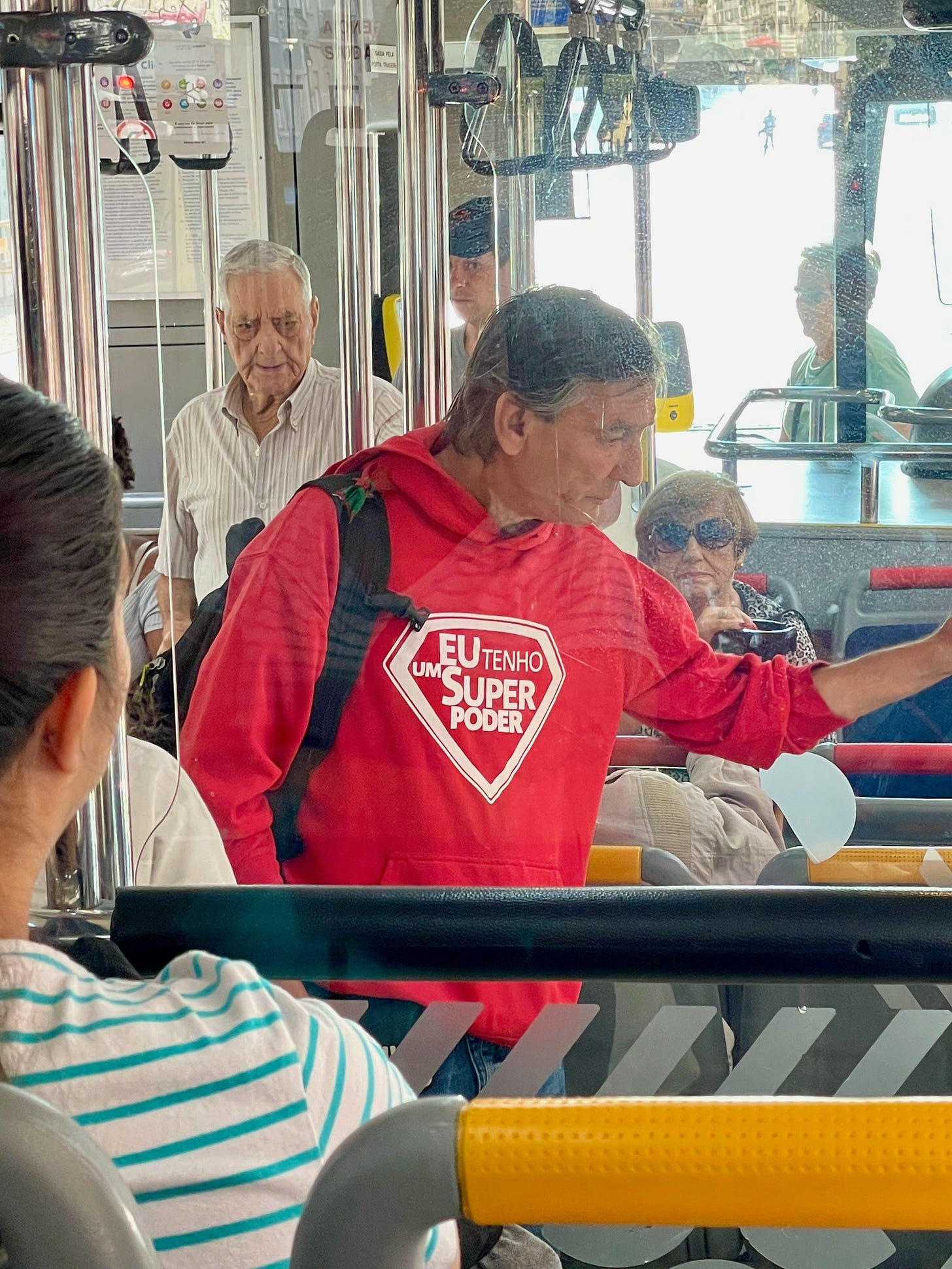Talking to Strangers Can Change Everything
Do Americans have a superpower that others could learn from?
Hello, stranger
Here’s the thing: Talking to strangers is more important than you think. It can change your life—in small ways or in big ways. A moderate example from my own life starts with a woman saying to me, “Are you sure you don’t have any Italian blood?”
If you know me, you will know that I don’t look the least bit Italian. But one day, fourteen years ago, I was on a boat in Norway, as part of an academic conference I was attending. Talking and joking with an English friend of mine, I paid her a flirty compliment that was so cheesy I won’t repeat it here. But it was then that I heard, from a woman sitting nearby, “Are you sure you don’t have any Italian blood?” I turned to the woman and smiled, and she joined the conversation. It turned out that she was Italian and knew a thing or two about flirty compliments. We quickly became friends, and over the next few years, research collaborators. At this point, we have published articles together, spent time at each other’s universities, and stayed in each other’s homes. I spoke to her just the other day. We will hopefully be lifelong friends. And it all started with her remark to a stranger.
So this is about talking to strangers. I feel like an unlikely person to be writing about that topic, as I am inherently quite shy. As I child, I felt very awkward around people, especially those I didn’t know. This improved gradually as I got older, moved around, changed jobs, and had to make new friends over and over. I think that living abroad also had a major impact. And of course, studying and teaching linguistics increased my interest in communication.
So OK, maybe it’s not all that strange that in recent years I have been giving workshops in successful communication. One of these, when people hear about it, tends to provoke great interest, and even astonishment. It is a workshop I was commissioned to create by a career-development unit at my old university in Sweden. The workshop, which I have now given a few times, aims to help participants learn how to engage in small talk.
Now, in case you have Italian blood and are laughing at this, let me tell you that this is something that many Swedes (and some of their neighbors—I’m looking at you, Finland) have real problems with. It can actually be an obstacle to professional development. But let’s come back to Sweden in a moment. I want to talk first about what is happening around the world.
The death of connection
Thirty years ago, American political scientist Robert D. Putnam published an essay that would be reworked into the book Bowling Alone: The Collapse and Revival of American Community. This book, which made a great impression on many who think and write about culture, delves into the ways in which the United States had started to witness the dissolution of the social structures that had been holding the society together and preventing loneliness.
And this was before the age of the Internet! Skip forward thirty years, and what do we see? People sitting alone in the dark, looking at their phones, wondering why they have been ghosted.
Today, instead of going to the store, I can buy nearly everything I need online from Amazon. Instead of going to a restaurant, I can order anything I want and have it brought to my home by an immigrant on a bicycle who is desperately trying to earn minimum wage. Instead of taking a taxi—or god forbid, the bus—I can order an Uber, which means I don’t have to utter any words beyond “hello” and “goodbye”. Instead of going to the cinema and seeing other live human beings, I can stream films on Netflix. And I’m not even going to mention porn.
As a result, these days you can’t throw a cyber-stick without hitting an article about the epidemic of loneliness that most of the Western world is suffering from. Will talking to strangers solve that problem? No. But it can help.
Tiny victories
One of my mantras is “Tiny victories”. Every time I have an experience that can be assessed as a success or a failure, the result will be either that I feel a bit better about my life, or that I feel a bit worse. On most days, we don’t have any grandiose, Romantic, standing-on-the-bow-with-outstretched-arms sorts of experiences. What we do have is a series of little knocks that either push us up or push us down. My view is that on any given day, life is OK when I have more upward knocks than downward ones. This means that every tiny victory counts for something.
What does this have to do with talking to strangers? Everything, in my view. Each time I have a positive encounter with another human being, it brightens my day, for all of these reasons:
I get a hit of oxytocin, dopamine, and serotonin
It makes me feel just a bit less alone
It tells me maybe I can do this whole talking-to-people thing after all
It adds a dollop of cement to anchor me in this place
It restores my faith in humanity just a little
So really, why wouldn’t you talk to strangers?
The role of culture
We all know that people are individuals and that we are all different from each other. Nevertheless, each of us grows up somewhere, and wherever we grow up, there is a culture into which we are socialized. As I touched upon in the essay “Living Abroad Changed Me as a Person”, what culture does is to provide us with a lens through which to see and interpret the world. It also gives us a set of expectations about human behavior, including ideas about what is “right” and what is “wrong”. In the United States, where I grew up, despite the erosion of the social structures that Robert Putnam wrote about, there is still an expectation that people will be friendly, polite, and communicative with strangers.
I once did an informal study at my university in Sweden. I asked a few dozen people about stereotypes of different nationalities, including Americans and Swedes. The results are so interesting that I may share them someday in an essay. But the one data point that is relevant here is that the most common statement Swedes made about Americans is this: They talk to strangers! To many Swedes, this appears to border on the shocking. The adjective most commonly associated with Americans was “friendly”. Let’s think about that.
What does it mean to be friendly? We could say that it means “treating someone like a friend, even though they are not”. To be friendly is to make a stranger feel like a friend. The fact that many Swedes also labeled Americans as “superficial” comes, I think, from a failure to understand the nature of friendliness. They say things like, “She was so nice to me, but she wasn’t really interested in being my friend!” Exactly. To be friendly is to grant someone the kind attention that we might bestow naturally on a friend, with no expectations or strings attached. This can be confusing to people who are not used to it.
If we are to talk to strangers, we need to consider the cultural context we are in. Just as a Swede visiting the United States might be expected to smile and engage in pleasantries with new people, an American visiting Sweden will be expected not to start conversations with restaurant patrons at the next table.
A lovely aside: I was actually working on this very essay in one of my favorite local restaurants (see recent fish pic), after a late but hearty lunch of rancho à Minhota (meat, beans, cabbage and pasta), when I got drawn into a conversation between the proprietor and a very nice Portuguese/English couple who had happened by and stopped for lunch. The couple, Robert and Lurdes, upon learning that I was American, started talking to me about how friendly Americans are, and how good they are at talking to strangers—better than the Brits and even the Portuguese. Isn’t that fabulous?
I talked with Lurdes and Robert about how our comfort level with a new person depends in part on how similar to us they seem to be, which goes a certain way toward explaining why people tend to be less friendly with foreigners than with their own countrymen. This will come up again below.
But let’s get back to cultural context. If you are walking down the street and pass someone going the other direction, what do you do? Do you smile at them? Say hello? Raise your eyebrows? Avert your eyes? Any of these could be seen as appropriate, given the immediate situation and the broader cultural context. One thing that doesn’t do much to help Americans’ image among Europeans is their tendency to say hello to people in all sorts of situations—even walking down the sidewalk in a busy city. The rules for greeting people are highly complicated and vary greatly from country to country, and it behooves us to pay attention to them. But Americans do seem to have a superpower when it comes to talking to strangers.
Who do you want to be?
When I was interviewed by
of Elizabeth.Ink, one thing we talked about in the podcast (among many other interesting things—feel free to give it a listen) was my explicit decision to try to be the sort of person who is jovial and talkative with strangers. As I have mentioned, despite being an American, I did not grow up with much facility in this department, so it is a challenge for me. But: Tiny victories. Every time I have a pleasant encounter with someone I don’t really know, it makes my day.Here is a recent example. If you walk around my neighborhood in the afternoon, you may pass several restaurants and cafés with people sitting at tables outdoors with a bottle of wine and maybe a small glass of aguardente or some other liqueur. The other day, I was walking through an absurdly adorable local square, and I passed right by a table where two women were sitting and talking. One of them had a glass of wine and, right next to it, a bottle of drain unclogging liquid. I did a double take, and then, drawing on my inner American superpower and overcoming my natural timidity, stopped and said to her (in Portuguese), “So tell me, is that stuff really good with wine?” The woman turned away from her friend, looked up at me in confusion, looked at my finger, followed it to the bottle, and burst into laughter. We went back and forth along the lines of: “I don’t know—I haven’t tried it yet!” “Well let me know once you do!” “If it’s good, you might find me here again tomorrow!” “And if it’s not, I definitely won’t!” I went home with a burning sense of satisfaction, knowing that today, life was OK, thanks to the little upward knocks.
Tips for talking to strangers
I want to believe that people come to my Substack for the bloviating, but I hear that people also like tips. So let me offer three tips for talking to strangers.
First, remember that every face-to-face encounter with a stranger, unless one (or both) of you is blind, starts with a visual impression. What message does your face convey to the other person? Do you look stressed and nervous, or friendly and interested? You would not believe what a positive effect it can have to make eye contact and smile.
Now, before I go any further, let me just say that I am not recommending that you do this with every human being you come across—that would land you in an institution pretty quickly. But in a situation where you actually want to make contact with someone—let’s say, running into a neighbor, or buying something in a shop—remember that you start communicating with your face before you use your voice.
Of course, there are many different ways to smile, ranging from a chaste little Mona Lisa smirk to an unhinged Evil Clown grin. If you are uncertain about what you tend to do with your face when you run across someone, It might not be a bad idea to look in the mirror and practice just a bit. Even better: Mean it. A fake smile comes from not really feeling friendly. Try telling yourself, “I want to be friendly and talk to this person”. Hopefully, your face will communicate that too.
Second, since this is a Substack about living in foreign places, if you need to use another language to greet people, pay close attention to how native speakers do it. I said earlier that people are more comfortable with others who seem similar to them. Even if you might look like a foreigner, you don’t have to sound like one—not when you say hello, in any case. Make an effort to get not just the words but the prosody right when you say things like “hello”, “good morning”, “how are you”, “thanks very much”, and other simple things in the local language. It will make a difference.
Third, remember that, unless you are being arrested, you are meeting an individual, not a type. Do not focus on the categories that this person seems to represent (woman, French person, shop assistant, student, retiree, etc.), but be prepared to meet someone who is unique. I would even go so far as to say this: Assume that everyone is lovable, including the person in front of you. If you approach them with curiosity and an open mind, they will surprise and may even delight you. If they perceive that you are prepared to like them, they will be likely to reciprocate.
Stranger things have happened
Think about this: Everyone you know, apart from your mother, was once a stranger to you. The best argument I can give for being open to talking to strangers is that you never know what importance a new person may ultimately have in your life. I am reminded of
’s piece about the stranger who convinced her to change her life. And here is another story...It was summer, almost twenty-five years ago, and I was in California, on a college campus, in a dormitory. I was there for a special summer school as part of my graduate education as a linguist. But no matter how special the experience was, I still had to do laundry sometimes. So one day, I went down to the laundry room in the dormitory with a bag full of clothes. As I entered the apparently empty room, I heard a voice say, “Don’t be afraid. I’m right here.” I looked up and saw the timid smile of a beautiful young woman, who turned out to be Swedish. We started talking. Twenty-eight months later, we got married.
So don’t be afraid to talk to strangers. They really can change your life.














Isn't there a saying, strangers are just friends we haven't met yet? I admit, as a solo traveler, I will talk to as many locals who seem willing to talk to me. One such chat, on a train in Italy may have saved me. He asked where I was going next. When I said Cinque Terre, he looked horrified, saying, haven't you seen the news? There's flash floods there now! I had no idea... He convinced me to stay longer in Bologna and offered to be a tour guide in exchange for practicing English. Best memories and a new friend to boot.
Finland hears you. We are trying to be more open to talking to strangers 🤩🤩